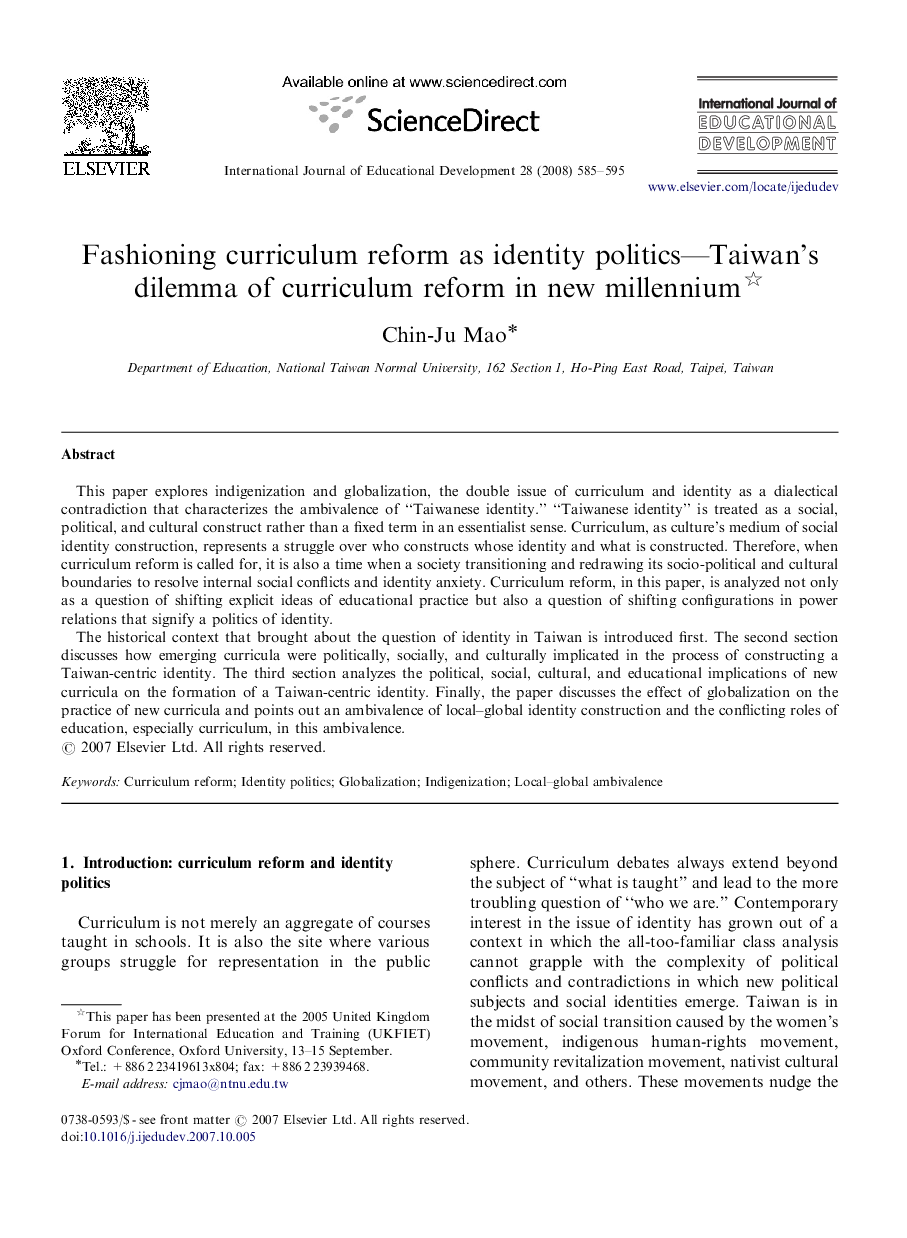| کد مقاله | کد نشریه | سال انتشار | مقاله انگلیسی | نسخه تمام متن |
|---|---|---|---|---|
| 356549 | 1435192 | 2008 | 11 صفحه PDF | دانلود رایگان |

This paper explores indigenization and globalization, the double issue of curriculum and identity as a dialectical contradiction that characterizes the ambivalence of “Taiwanese identity.” “Taiwanese identity” is treated as a social, political, and cultural construct rather than a fixed term in an essentialist sense. Curriculum, as culture's medium of social identity construction, represents a struggle over who constructs whose identity and what is constructed. Therefore, when curriculum reform is called for, it is also a time when a society transitioning and redrawing its socio-political and cultural boundaries to resolve internal social conflicts and identity anxiety. Curriculum reform, in this paper, is analyzed not only as a question of shifting explicit ideas of educational practice but also a question of shifting configurations in power relations that signify a politics of identity.The historical context that brought about the question of identity in Taiwan is introduced first. The second section discusses how emerging curricula were politically, socially, and culturally implicated in the process of constructing a Taiwan-centric identity. The third section analyzes the political, social, cultural, and educational implications of new curricula on the formation of a Taiwan-centric identity. Finally, the paper discusses the effect of globalization on the practice of new curricula and points out an ambivalence of local–global identity construction and the conflicting roles of education, especially curriculum, in this ambivalence.
Journal: International Journal of Educational Development - Volume 28, Issue 5, September 2008, Pages 585–595